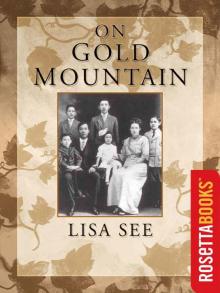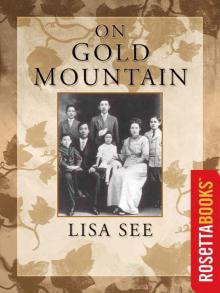The Island of Sea Women Read online
Page 11
On the other side of the curtain, the oil lamp went out. Mi-ja tucked the papers back in her father’s book, and I turned down our oil lamp. Mi-ja wrapped her body around me, pulling me tighter than usual. She tucked her knees against my knees, her thighs against my thighs, her breasts against my back. Her arm draped over my hip, and she rested her hand on my stomach. The next day we would wake early and be dropped into the bitterly cold sea again, so we needed to sleep, but the unevenness of her breath on my neck and the alertness in her body made me realize she was wide awake and listening hard. Across the room, I sensed the Kang sisters listening to us equally hard. But it wasn’t long before Gu-sun began her light, buzzing snore. Soon her sister was lulled by that familiar sound, and her breathing deepened and lengthened.
Mi-ja’s body relaxed, and she whispered in my ear. “I want my husband to be filled with grit and mettle.” She clearly had not let go of Gu-ja’s comments. “He doesn’t have to be handsome, but I want him to have a strong body to show he’s a good worker.”
“It sounds like you’re talking about a mainland man,” I said. “How are you going to find one of them?”
“Maybe the matchmaker will bring one to me,” she answered.
Marriage arrangements were made either by matchmakers or when a relative of high regard made inquiries. It was doubtful, at least from my perspective, that Mi-ja’s aunt and uncle would pay for a matchmaker, and Mi-ja had never spoken of a relative of high regard who might bring a proposal. Most important, mainland men saw Jeju women as ugly, loud, and boyish in shape, with our lean bodies and strong muscles. They considered us to be too darkened by the sun. Mainland men also had strict ideas about how women should behave, because they followed Confucian ideals far more than Jeju men did. A woman was supposed to be gentle in her speech. Mi-ja had a lovely voice, but if she kept diving, her hearing would eventually go and she’d shout just as loudly as any other haenyeo. If she married a mainland man, she’d need to maintain a peach complexion. How was that going to happen if she spent her days under the sun, in salt water, buffeted by winds? A mainland husband would want a wife who dressed modestly, but haenyeo were considered to be half naked all the time. A wife should have red lips, shiny eyes, and a quiet disposition . . . All these ideas about women were set in stone in the minds of mainland men. Jeju husbands might have been indolent, but they would never triumph in a battle about what a woman could or could not do, say or not say. I mentioned none of this, however.
“I don’t care about looks so much,” I offered.
“You do too!” Mi-ja exclaimed.
Across the room, Gu-sun’s snoring snagged, and her sister rolled over.
“All right,” I admitted quietly after the Kang sisters settled once again. “I do. I don’t want someone who’s as thin as chopsticks. I want him to be dark skinned to show he’s not afraid of laboring in the sun.”
Mi-ja gave a throaty laugh. “So we both want men who will work.”
“And he should have a good character.”
“Good character?”
“Mother always said a haenyeo should not be greedy. Shouldn’t that be true for a man too? I don’t want to see greedy eyes or be around greedy hands. And he has to be brave.” When Mi-ja didn’t comment, I went on. “The most important thing is to marry a boy from Hado. That way I can continue to see and help my family. If you marry one too, we’ll both maintain our diving rights. Remember, if you marry out, then you’ll have to be accepted into that village’s collective.”
“More important, if I marry out, we’d no longer be together,” she said, pulling me even closer until nothing could separate us, not even a piece of paper. “We must stay together always.”
“Together always,” I echoed.
We drifted into silence. I was getting sleepy, but I had a few last thoughts I wanted to share with her. I whispered some of the biggest complaints about Jeju men that I’d always heard. “I don’t want a husband with puny thoughts. I won’t tolerate a husband who needs scolding—”
“Or requires constant attention to know I care for him,” she added. “He can’t drink, gamble, or desire a little wife.”
There, in the nighttime shadows, we could dream.
When Thoughts Turn to Weddings
July–August 1944
When the season ended in late July, the Kang sisters, Mi-ja, and I boarded a ferry from Vladivostok to the Korean mainland and then took a second ferry down the east coast to Busan. Before catching the boat to Jeju, we went shopping. We were careful to speak Japanese in public as the colonists required. The Kangs quickly made their purchases and headed home. Mi-ja and I didn’t have husbands and babies who missed us, which allowed us to spend an extra day wandering the alleyways and open-air markets.
We patronized a stall that sold grain and came away with burlap sacks stuffed with barley and low-grade rice. One by one, we heaved them onto our shoulders and took them back to our guesthouse. A cloth peddler sold us quilts, which we rolled up tight to reduce their bulk and make them more portable. These we would take into our marriages. I spent a week’s earnings on a transistor radio, thinking this would make a good present for my future husband, while Mi-ja chose a camera for her future husband. I bargained hard for practical gifts for my siblings: a length of cloth, needles and thread, a knife, and the like. Father would receive a pair of shoes, and for Grandmother I bought socks to keep her warm on winter nights. Mi-ja and I chipped in to buy material to make scarves for Yu-ri, which we planned to sew on the trip home. Mi-ja also procured items for her aunt and uncle. Several times I spotted her standing motionless, staring into the distance, trying to remember all the things they’d asked her to bring home. On a few occasions, we went our separate ways, but for the most part we stayed together, haggling for better prices, smiling at merchants if we thought it would help, shouting in our loud haenyeo voices if it looked like they thought we were mere factory girls.
“We’ll buy six bags instead of two for me and three for her,” Mi-ja might say, her near-perfect Japanese conveying the steel in her heart, “but only if you give us a good price.”
When we were done, we still had enough money to pay for our room, buy deck-only tickets on the Jeju-bound ferry, share a simple meal, and have enough left over to help with wedding celebrations that had yet to be arranged. Getting everything to the dock took time. We didn’t want to leave our goods unattended, so one of us carried bags and boxes from the security of our room to the dock, while the other stood guard over our growing pile. Then we took turns moving everything from our pile up the gangplank and into a sheltered corner we’d found on the deck near a group of haenyeo, who were also returning home. One haenyeo wouldn’t steal from another. We didn’t need to worry about strangers trying to get our things off the boat when we were at sea either.
The crossing was rough, but the skies were clear. Mi-ja and I stood at the prow of the ferry, holding on to the railing, bouncing across the waves. Finally, far in the distance, Grandmother Seolmundae—Mount Halla—came into view. I was eager to be on my island. My desire made me impatient, though, and it felt like the crew took an eternity to bring the ferry past the breakwater and into the man-made harbor.
From the deck, we could see that the past nine months had brought many changes. There were far more—yes, absolutely, more—Japanese soldiers than we’d seen on the mainland, and certainly more than we’d seen before in Jeju City’s harbor. Some of them stood at attention at each point of entry, exit, and transaction. Others marched in formation, with their bayonet-tipped rifles propped on their shoulders. A few were apparently off duty, and they lounged against walls or sat on crates with their legs swinging. We’d been on our own in Vladivostok, and we were accustomed to men whistling at us or calling out words we couldn’t understand, but it had all seemed harmless enough. This felt different. The soldiers’ eyes followed us as we took turns unloading our belongings and purchases, with one person staying on the dock and the other doing the carrying. They couldn’t
do anything to us when there were still so many passengers greeting families, businessmen striding purposefully through the crowd, and others unloading their trunks and suitcases. Most haenyeo unloaded faster than we did, however, and within minutes, Mi-ja and I were the last women left on the dock.
Three more things struck me. First, our port smelled just as bad as any other I’d visited—fetid with diesel fuel and fish. Second, the local boys, who usually crowded the docks looking for work when ships and ferries landed, were not in evidence. And third, seeing all the Japanese soldiers, sailors, and guards recalled the time the patrol came into our field. But we were older now—twenty-one—and we must have looked attractive to them. Mi-ja seemed to have noticed their interest too, because she asked, “What are we going to do? I’m not about to leave you here by yourself.”
“And I won’t let you walk alone to the recruiter’s stand.”
I caught sight of a soldier eating a piece of fruit a few meters away. The way he leered at us . . .
“You appear to need help. Is there something I can do for you?” a voice asked in Japanese. Mi-ja and I turned. I expected to see a Japanese man, but he clearly wasn’t. (What a relief.) And I doubted he was a native-born Jeju man, because he wore trousers, a white shirt with a collar, and a jacket that zipped in front. He wasn’t much taller than we were, but he was stocky. It was hard to tell, dressed the way he was, whether his bulk was from hard work or too much food.
Mi-ja dipped her chin as she explained the practicalities of getting our possessions to the pickup spot. The whole time she was speaking, he stared at her attentively, which gave me a chance to get a better look at him without either of them noticing. His hair was black, and his skin wasn’t too tanned. He was handsome in a way that was familiar to me—not like those Soviets, and not at all like a Japanese. I started daydreaming . . . I wondered who he was. My thoughts turned to weddings. I blushed, and I worried that the expression on my face might give me away, but the two of them weren’t paying attention to me.
When Mi-ja reached the end of her explanation, he leaned in close and whispered to us in the Jeju language. “I am Lee Sang-mun.” His breath was warm and sweet, as though he’d been eating oranges. This was another indication that he was from a good family and not just a farmer’s son, who lived on common foods like garlic, onions, and kimchee. He straightened and announced rather loudly in Japanese, “I will help you.”
The reaction around us surprised me. Many of the Japanese soldiers lowered their eyes or shifted them away from us, which gave me another piece of information. Sang-mun was important in some way.
He snapped his fingers, and three dockworkers trotted to us. “You will carry these things for . . .”
“I’m Kim Young-sook,” I blurted. “And this is Han Mi-ja.”
“Boys, please follow Miss Kim to the place where the haenyeo get picked up. You know where it is.” His fluency in Japanese and his accent were nearly as perfect as Mi-ja’s. “One of you stay with her there. The other two, return to me so you can carry the rest and escort Miss Han to her friend.”
When I tried to pick up a bag to sling onto my shoulder, he said, “No, no, no. My boys will handle everything.”
I felt like a goddess to have such help. As I set out with the dockworkers jogging behind me, I held my head high and my back straight, sure that Sang-mun’s eyes would follow me until I was out of sight.
When we reached the assigned corner, two of the dockworkers went back to the wharf as Sang-mun had ordered, while the other sat on his haunches to wait with me. Did that ever get a rise out of the haenyeo!
“Look! A haenyeo has her own servant!” a woman teased me.
“Are you looking for a bride?” one of them asked the dockworker.
“You’d better watch her. She might run away!”
The man wrapped his arms around his knees, hung his head, and tried to ignore their comments.
Thirty minutes later—an eternity—a new procession came into view. This time, the two helpers pushed wheelbarrows heaped with goods. Mi-ja and Lee Sang-mun walked side by side. I could hear him laughing even from a distance. That’s when I realized he’d sent me away so he could be alone with Mi-ja. I was sure of it. Now, as they approached, I saw that Mi-ja was as pale as a jellyfish. No wonder he was attracted to her. Not in many years had I felt jealous of Mi-ja, but I did now, and it was unsettling. I smoothed my hair and tried to freeze the same type of reserved mask that Mi-ja wore on my own face. I could do nothing to make myself into her perfection, but I could be clever in my own way.
Trucks with different destinations came and went, but none was going in the direction we needed. While we waited, I asked Sang-mun questions, which he easily answered. He’d been born in Jeju City and educated in Japan. “You know,” he said, “so many of us have gone to Japan to study that Jeju now has more educated people than anywhere else in Korea!”
Maybe this was so, but it didn’t reflect my experience.
“My father manages a cannery here in the port,” Sang-mun went on. This had to mean his father was a collaborator, since all canneries were owned by the Japanese. I should have immediately lost interest. Or not. My closest friend was the daughter of a collaborator. Maybe my husband could be the son of a collaborator too. Besides, his expression was so charming and his smile so infectious that all I could think about was how handsome he was.
I asked more questions. Every answer showed him to be unlike anyone I’d ever met. Through it all, Mi-ja stared down the road, ignoring the conversation. Her disinterest gave me even more confidence.
“I grew up following the comings and goings in and out of the harbor,” he explained. “I anticipate I’ll take over for my father one day, but for now I work for the Jeju City government. I oversee their food warehouses and other stockpiles.” This was another confirmation of his status: he was not just a collaborator but a high-ranking one. Working for “the Jeju City government” meant that he was employed by the Japanese military. “I’ll admit it,” he said. “I have big dreams. My job may not seem very important, but you have to start somewhere.”
A flatbed truck pulled up. The driver leaned out the window and shouted that he’d be heading east on the coastal road, passing through many seaside villages, including Hado, before reaching his final destination of Seongsan, where the remaining haenyeo could take a last ferry home to the small island of Udo just offshore. About a dozen women peeled away from the crowd and began throwing their bags on the truck.
“Come on,” Mi-ja mumbled. “This is us.” She promptly got to work, wordlessly tossing our belongings up onto the flatbed. Sang-mun and I helped too, but we were still trying to exchange as much information as possible.
“In which part of Hado do you live?” he asked.
“I live in Gul-dong,” I answered. I tried to look modest, but it was hard. He wouldn’t make an inquiry about where I lived if he wasn’t interested in me. Then, because Mi-ja was standing there and I didn’t want to appear overeager, I added, “My friend lives close by in Sut-dong.” She responded by closing her eyes and bringing a closed fist to her heart. If she thought that made her look dainty, she was right. I fought another wave of jealousy.
I thanked Sang-mun for helping us. Mi-ja climbed onto the truck, reached down a hand, and helped pull me up. The driver ground the gears, the truck lurched, and we started rolling. I waved goodbye to Sang-mun, but Mi-ja had already turned her back and joined the circle of haenyeo seated on the flatbed. She unfolded a kerchief in which she’d packed some fruit. I opened a basket and pulled out rice balls. The other women added dried cuttlefish, jars filled with homemade pickled turnip and kimchee, and a bunch of green onions. One woman passed around an earthenware jug filled with drinking water. Another opened a jug of fermented rice wine. Mi-ja took a swig and squinted in response to the taste. When the liquor poured down my throat, my chest burned with the taste of my birthplace.
Ordinarily, Mi-ja and I would have picked apart every detail of the
encounter with Sang-mun, just as we had with Vlad, Alexi, or any of the other boys we’d met in this or that port. Not this time. When I commented that it was lucky that Sang-mun had come along when he did, she replied defensively, “I never would have let you stay alone on the dock.”
“Did he ask about me?”
“He said nothing about you,” she answered tersely. “Now let’s not talk about it anymore.”
After that, she wouldn’t answer a single question I asked, so we gossiped with the other women. The food, wine, and knowledge that we were home buoyed everyone’s spirits.
Each kilometer of the bumpy ride revealed another familiar or beloved vista. We passed through Samyang, Jocheon, Hamdeok, Bukchon, and Sehwa, stopping at each to let off a woman or two. The low stone walls of the olles snaked along the hillsides. They also surrounded fields, creating a patchwork of colors and patterns. Flocks of crows lumbered across the sky. In the sea, we spotted pods of haenyeo, their tewaks bobbing. And always in sight at the center of the island loomed Grandmother Seolmundae. As beautiful and welcoming as it all was, I couldn’t stop creating images in my head: Maybe Shaman Kim could conduct the rituals for my marriage celebration. Maybe I could wear my mother’s wedding clothes. Or maybe Sang-mun would give me fine cloth to make my own. Or maybe he’d prefer for me to wear a Japanese kimono and have a Japanese ritual, as was required by the colonists. Yes, that was probably it. No shaman, but yes to a Japanese kimono. Maybe Father would pay for banquets in Hado and Jeju City, although I didn’t see how.
“We’re almost there,” Mi-ja said and began to gather the bags. The few people who were working in the fields lifted their heads when the truck stopped. We jumped off. The loud island voices of our neighbors greeted us.
“Mi-ja!”
“Young-sook!”
A mother sent one of her children to run to my house to announce my arrival. Women on the truck threw our belongings down to us. We were about half done unloading when whoops and calls began to reach my ears. There, running up the olle, were Third Brother and Little Sister. They looped their arms around my waist, burying their faces into each of my shoulders. Then Little Sister pulled away, hopping about in excitement. She was sixteen now and already working as a haenyeo in Do-saeng’s collective. Our lives would be easier now if the Jeju saying held true: A family with two daughters of diving age will have no problems borrowing money or paying their debts. I was so happy to see her! But not everyone had come, and I looked down the olle for the rest of the family.

 On Gold Mountain: The One-Hundred-Year Odyssey of My Chinese-American Family
On Gold Mountain: The One-Hundred-Year Odyssey of My Chinese-American Family Snow Flower and the Secret Fan
Snow Flower and the Secret Fan Peony in Love
Peony in Love Flower Net
Flower Net Dragon Bones
Dragon Bones Shanghai Girls
Shanghai Girls Dreams of Joy
Dreams of Joy The Island of Sea Women
The Island of Sea Women The Tea Girl of Hummingbird Lane
The Tea Girl of Hummingbird Lane China Dolls
China Dolls The Interior
The Interior On Gold Mountain
On Gold Mountain